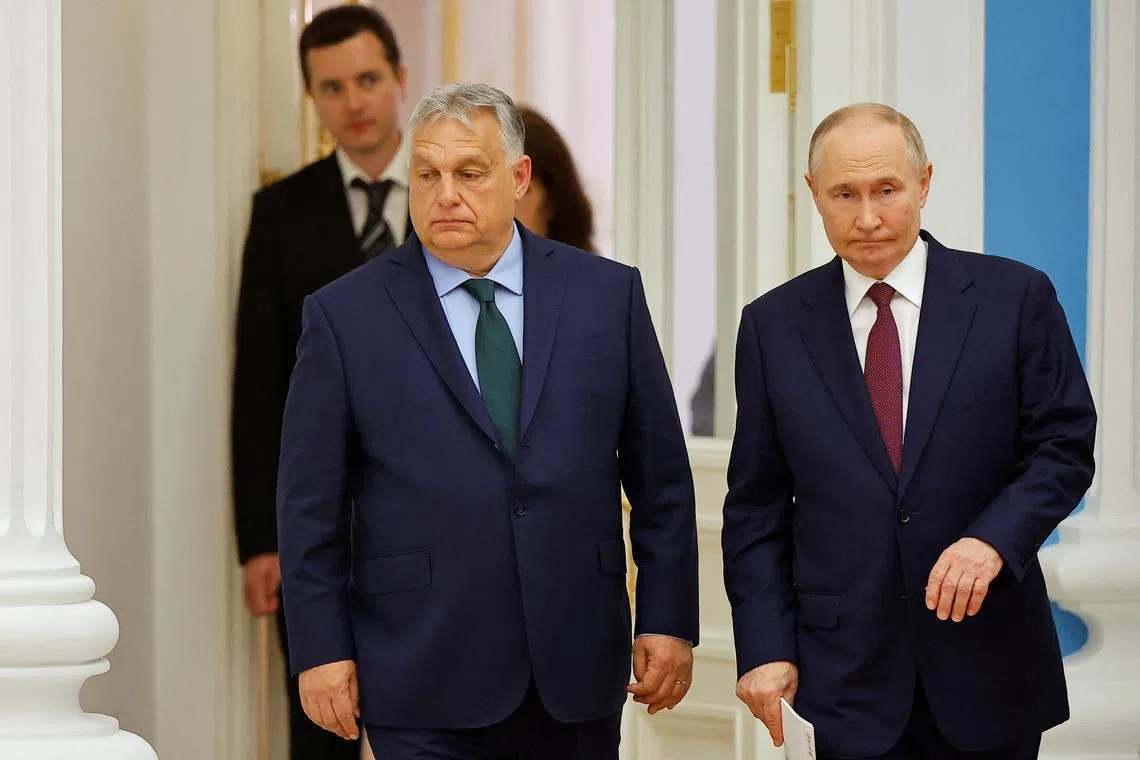EU ministers to discuss response to ‘unacceptable’ Hungary stance on Ukraine war
Sign up now: Get ST's newsletters delivered to your inbox

Hungary's Prime Minister Viktor Orban and Russia's President Vladimir Putin arrive for a press conference in Moscow on July 5.
PHOTO: REUTERS
PARIS - European Union Foreign Ministers will evaluate how to respond to trips by Hungarian Prime Minister Viktor Orban to Russia and China and his country's positioning over the EU's role in Ukraine, foreign policy chief Josep Borrell said on July 22.
Hungary took over the six-month rotating presidency
He also left a Nato summit early to meet former US president Donald Trump. Mr Orban's foreign minister has since questioned the EU's role in Ukraine.
“We will discuss what has happened and positions taken by the Hungarian government,” Mr Borrell said, describing them as “unacceptable”.
Some member states would like the bloc to show a tougher stance on Budapest.
Among the ideas would be to boycott or downgrade the attendance of ministers at an informal meeting in Budapest at the end of August, although there is division among countries on its utility.
German Foreign Minister Annalena Baerbock told reporters on arrival in Brussels that Mr Borrell represented EU foreign policy for the ministers and that it was “not surprising that the ego trips” had irritated many.
Luxembourg’s Foreign Minister Xavier Bettel said he would go to the informal meeting at the end of August, saying it was important to keep the dialogue with Budapest.
“Ignoring or not choosing dialogue would be an error,” he said.
Mr Orban, a critic of Western military aid to Ukraine and who has the warmest relations of any EU leader with Russia’s President Vladimir Putin, has also repeatedly held up decisions for military aid to Ukraine.
Speaking in a social media post ahead of the meeting on July 22, Hungary's Foreign Minister Peter Szijjarto criticised the bloc.
“For weeks now, the Brussels foreign bureaucracy and the leaders of some EU countries have been grinding their teeth over our peace mission, out of frustration/envy/exposure of their failed strategy,” he said, adding the trips had opened the door to further diplomacy.
“All we get from our Brussels and European friends is a childish sit-in boycott and verbal karate,” he said. REUTERS


